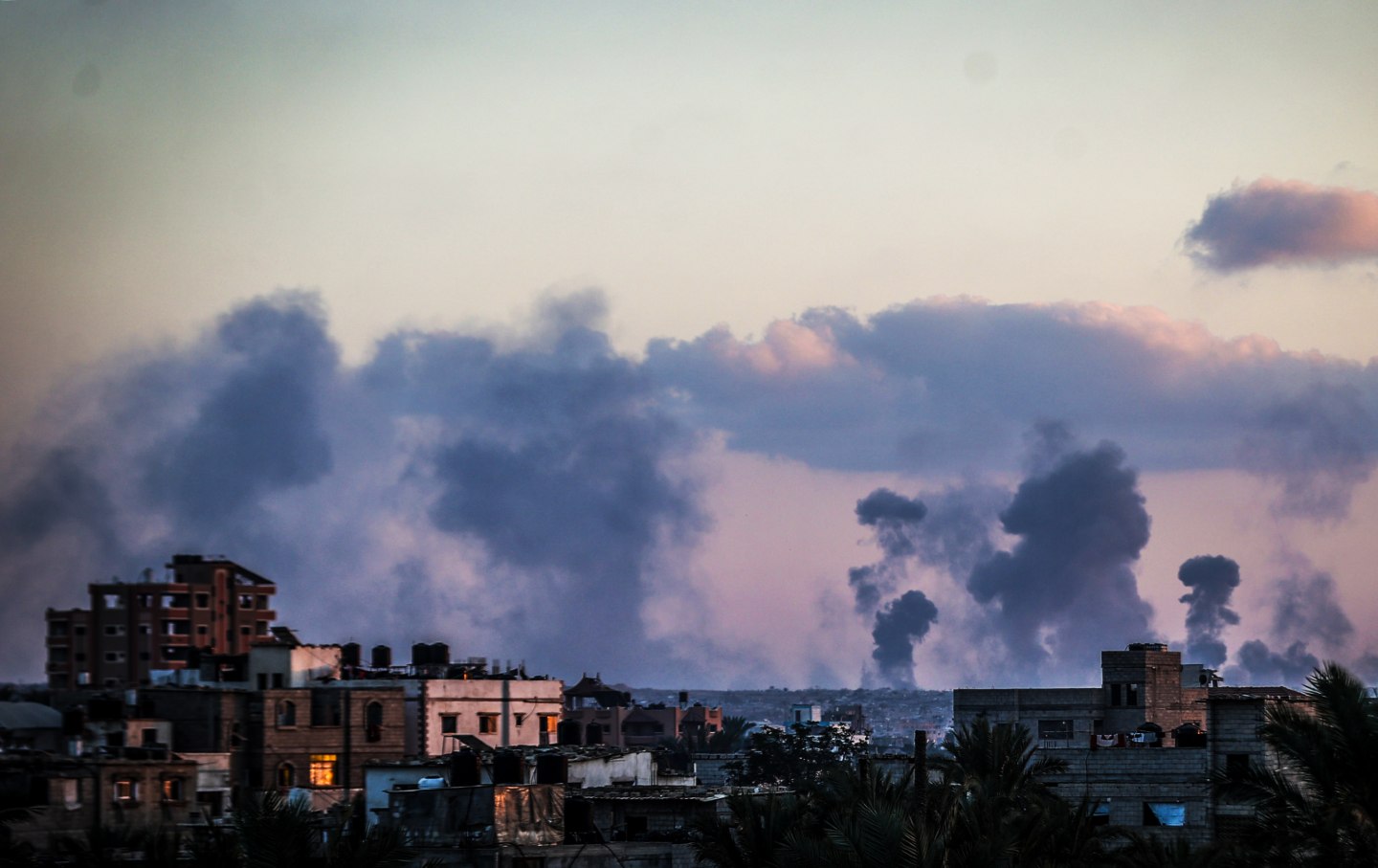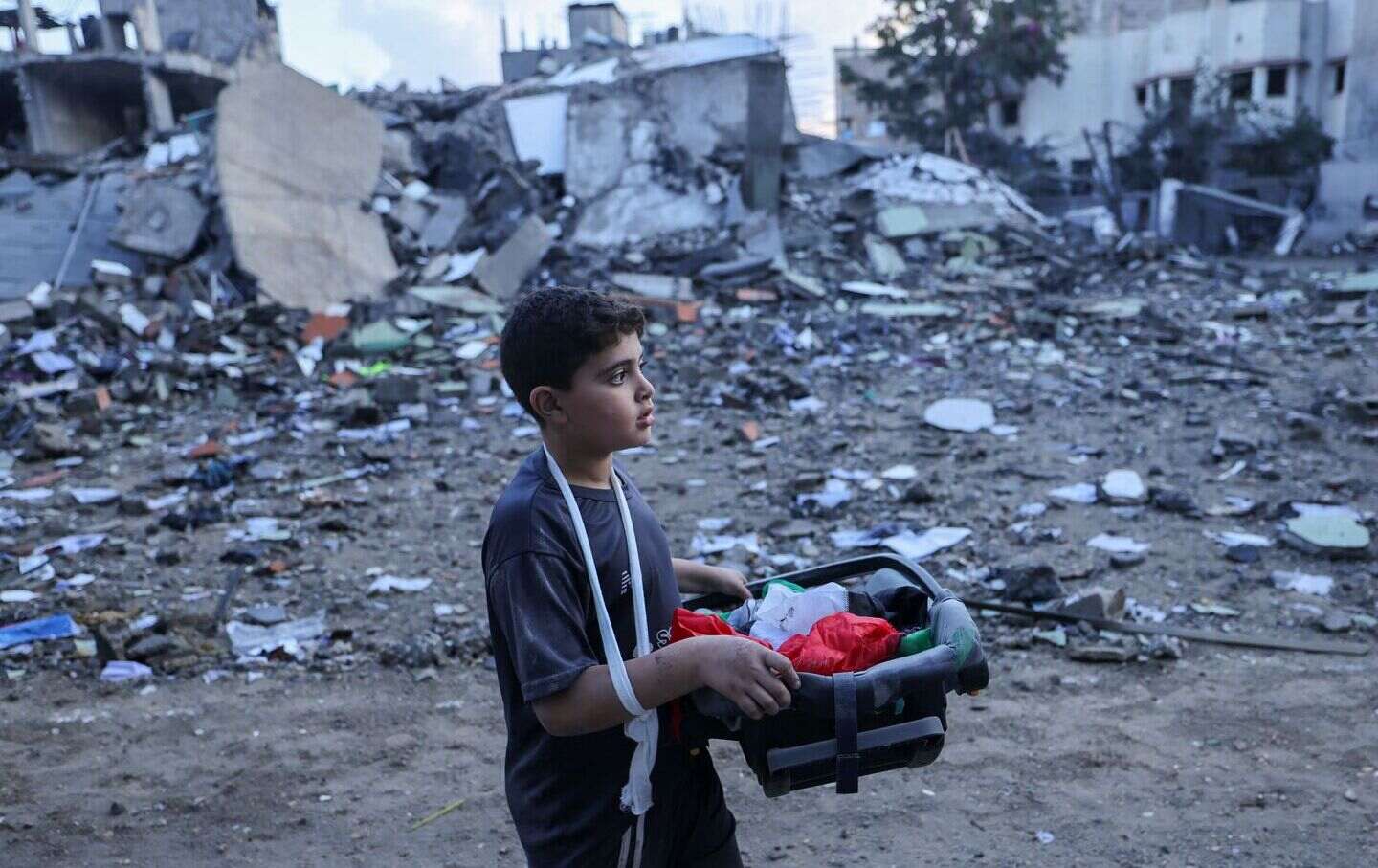The president's stated intentions to seize Bagram air base risk a departure from the détente of recent years.
The Afghan National Army after U.S. troops leave Bagram Airfield in northern Kabul, Afghanistan, in July 2021.
(Harun Sabawun/Anadolu Agency via Getty Images)
Relations between Pakistan and the United States, historically transactional, have soured since Osama bin Laden was found hiding in the Pakistani garrison town of Abbottabad in 2011. Towards the end of Imran Khan's premiership in 2022, there was much talk about how President Biden did not find it necessary to speak to Khan on the phone – even as the Taliban fought back. Afghanistan.
But last summer's conflict between India and Pakistan gave the latter an opportunity to stroke President Donald Trump's ego. Pakistan did this by recognizing Trump's efforts to broker a ceasefire in the conflict and nominating him for the Nobel Peace Prize, according to geopolitical analyst Christina Fair. “I don't think Trump is a subtle creature. I think with Trump, flattery goes a long, long way,” she says. “He constantly calls himself a peacemaker. That's a big part of his image, and the Indians don't play along with him.”
Since the conflict, Trump has given a number of indications that flattery is working. He repeated Pakistan's claim that the Pakistan Air Force was able to shoot down seven Indian warplanes during the four-day war. He also hosted the head of the Pakistani military, Field Marshal Asim Munir, at a White House dinner in June and lowered the tariff on Pakistani imports to 19 percent, compared with 50 percent on goods from India.
Pakistan also suggests that there is an element of quid pro quo in this rapprochement. On April 26—days before Pakistan and India went to war—the Pakistan Cryptocurrency Board signed an agreement with World Liberty Financial, a firm in which the Trump family owns a 60 percent stake. The agreement was reached after a delegation led by Zachary Witkoff – the son of Trump's Middle East envoy Steve – met with several members of the Pakistani government in Islamabad.
There are now rumors that Pakistan's powerful military establishment, in collaboration with the United States, is considering a regime change operation to overthrow the Taliban government in Afghanistan. The speculation follows the deadliest wave of fighting between the two South Asian neighbors since the Taliban retook Afghanistan in the summer of 2021. Dozens were killed and hundreds wounded in the 10-day conflict, which ended in a ceasefire brokered by Turkey and Qatar. The next round of negotiations is scheduled for this weekend.
The Taliban, many of whose leaders were educated in Pakistani madrassas, were once considered allies of the Pakistani state, which played an important role in their rise to power in 1996. But after the events of September 11, these relationships began to change. At the time, Osama bin Laden was living in Afghanistan under the protection of the Taliban, who refused to extradite him to the United States. In response, the Bush administration declared war on the Taliban and forced Pakistan to join the campaign.
Over the next 20 years, the Pakistani state was accused of a nefarious “double game” in the region, where it was said to be aiding the NATO war effort while at the same time helping to keep the Taliban afloat. Four years ago, when the Taliban retook Afghanistan, Pakistan's then Prime Minister Imran Khan praised the Taliban for breaking the “shackles of slavery.” Around the same time, a video emerged of the head of Pakistan's main spy agency drinking a cup of tea at a hotel in Kabul and declaring that “everything will be fine.” It was obvious to everyone watching that the Taliban's victory was also being celebrated by the Pakistani state.
But everything was not okay. Since the Taliban returned to power in 2021, Pakistan has experienced a sharp surge in terrorist violence along its northwestern border. Many of these attacks were carried out by the Tehreek-e-Taliban Pakistan, a militant offshoot of the Afghan Taliban with which it shares religious and ideological similarities. Pakistan accuses the Taliban of providing these militants with a safe haven as well as a base from which to plan their attacks. And although Kabul has repeatedly denied the accusations, including in this magazine in 2023Relations between neighbors are becoming increasingly toxic.
The situation finally came to a head on the morning of October 9, when Pakistan reportedly launched a series of airstrikes into Afghanistan. In the intense border clashes that followed, Islamabad claimed to have killed 200 militants, while the Taliban claimed the deaths of 58 Pakistani soldiers. Now that the ceasefire is just four days old, analysts are beginning to worry that Pakistan could be on the verge of being embroiled in a large-scale campaign to remove the Afghan government from power. Central to this hypothesis is the growing rapprochement between Islamabad and Washington, as well as President Trump's desire to assert control over Bagram Air Base.
On September 20, two days after raising the Bagram issue at a press conference in London, Trump turned to his Social Truth platform with a sharp threat to the Taliban. “If Afghanistan does not return Bagram Air Base to those who built it, the United States of America, BAD THINGS WILL HAPPEN!!!” he published.
Analysts have linked this stated desire on the part of the US President to the change in language of the Pakistani state towards Afghanistan and concluded that the United States and Pakistan may be planning to overthrow the Taliban by force.
South Asia scholar Farzana Sheikh notes that the Taliban government is now regularly referred to as Pakistan's “regime,” “with all sorts of suggestions that it does not enjoy popular support, that it is not inclusive and unrepresentative. screws.”
But if history is any guide, Pakistan and the US should be wary of such engagement. From the colonial era to this day, anyone who tried to intervene in Afghanistan was defeated. The United States, after spending more than $2 trillion over a 20-year campaign, was forced to withdraw in disgrace less than five years ago. Pakistan, on the other hand, does not have that kind of money.
More from Nation

The president's unprecedented and lawless attacks are ostensibly aimed at drug cartels, but serve a much more troubling political agenda.

A conversation with Robert Malley about Israel's actions in Gaza and the West Bank, why the US has failed to bring peace to the region, and his recent book Tomorrow will be yesterday.

As Israel continues to launch air strikes on the Gaza Strip, the weaknesses of both the ceasefire and Trump's 20-point plan are becoming increasingly apparent.

The use of airpower in attempts to subdue or at least curb the people of the Middle East has actually been around for over a hundred years.










